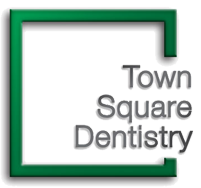
Nutrition and Oral Health
You probably already realize that maintaining a balanced diet offers a host of benefits to your overall health. But did you know diet also directly affects the health of your teeth and gums? It all starts before birth, as a baby's teeth begin forming in the sixth week of pregnancy and mineralizing in the third or fourth month. During this time, an expectant mother needs to take in lots of calcium (the major component of teeth) along with vitamin D, phosphorous and protein.
Nutrition and Oral Health Diet
Eating Healthy
What's the best diet for you? That depends mainly on your age, gender, height, weight and level of physical activity. But in general, a health-promoting diet is based on the concepts of:
- Variety. No single food can meet all of the daily nutrient requirements. Eating lots of different foods also makes meals more interesting.
- Balance. We need to eat the recommended amounts of foods from specific categories on a daily basis. Find out what your specific needs are at www.choosemyplate.gov
- Moderation. Don't supersize it. Foods and beverages should be consumed in serving sizes that are appropriate to meet energy needs while controlling calories, fat, cholesterol, sodium, and — particularly important in the dental arena — sugar.
Soft Drinks
Soft drinks, however, are a double whammy for teeth; many not only contain lots of sugar — up to 10 teaspoons per 12-ounce can — but they are also highly acidic. This means they erode teeth on contact, even before the bacteria in your mouth have processed the sugar these drinks contain. But even if they are sugar-free, the acid can still harm your teeth. So it might be best to avoid soda, sports drinks, energy drinks and canned iced tea. If you do occasionally have a soda, swish some water in your mouth afterwards — but don't brush your teeth for at least an hour! Doing so could make it easy for tooth enamel, already softened up by acid, to be eroded away by brushing.
Drinking lots of water can help you maintain a healthy supply of saliva, which protects teeth by neutralizing acid. You can also neutralize the acid in your mouth after a sugary snack by following it up with a piece of cheese.
Finally, remember that it's not just what you eat that affects the level of acidity in your mouth — it's also when. Snacking throughout the day, especially on chips, crackers, cookies or candy, means that your saliva never gets the chance to neutralize the harmful acids being produced. So if you eat sweets, do it only at mealtimes. As an added incentive, you may find this helps you maintain a healthy weight, too!
